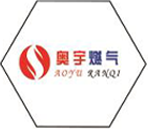SINOPULSE has built a strong reputation since it commenced manufacturing hydraulic hose and fittings in Hebei , China, over 20 years ago.
Sinopulse are growing and expand its hydraulic product range. Today, we are known for its dynamic, world leading fluid conveying technology.
Engineering excellence, customer-focus and highest quality products continue to attract new clients from numerous industries right across the world. Our products are found servicing an enormous range of applications across mining, underground, forestry, construction, utilities, defence, marine, oil and gas, agriculture and more.
Our quality range of hydraulic hose and fittings is supported committed Distributors and OEM brand customers.
We Care, We Listen, We Develop
Sinopulse goes successfully company that continues to grow because we care, we listen and, we develop.
Our mission is to develop products that perform equal to or better than our customer’s requirements and expectations. SINOPULSE is driven to provide customers with products that not only do the job that they are designed for but to increase longevity and performance.
We are committed to offering high quality products and this commitment, combined with our positive track record, is a key factor to our success.
Dynamic & Dedicated Team
Our people are our greatest asset. Dynamic and dedicated, our teams bring together a wealth of industry knowledge and market and sales support unparalleled in the industry.
Our team of field engineers proactively work with our clients “Connecting Partnerships” across a broad scope of services to provide complete port-to-port solutions. The resulting fluid connection systems are designed to work; they are reliable, safe and can operate at their maximum potential.
Quality Policy
Sinopulse is certified to the current version of ISO 9001:2015 – Quality Management System. Company Policy is to supply products and services that meet or exceed our industry standards. These standards include SAE, EN (DIN), AS, ISO, JIS, BS and BCS. The bottom line in Quality Control (QC) and Quality Assurance (QA) is Customer Confidence and Customer Satisfaction.
Sinopulse specialists in the design, manufacture, distribution and sales of a comprehensive range of high pressure hydraulic hoses and fittings as well as a comprehensive range of industrial hoses and fittings and specialist lubrication products and services. The Company operates on a global scale and its products service a wide range of industrial applications. Sinopulse has established an enviable reputation for expertise, service, quality and delivery.
Our Mission is to listen to our customers and deliver the highest quality and technologically superior fluid conveying connection hose and couplings solutions.
Our Vision is to be the premier supplier and service provider of choice in every market we participate in.
With such an extensive global footprint, RYCO can ensure quality product is delivered to our clients, whenever and wherever required.
Sinopulse is a solution-based supplier providing our clients with a complete range of services including on-time delivery, solving difficult engineering problems, cost reduction activities.
Sinopulse is ISO 9001 certified.









